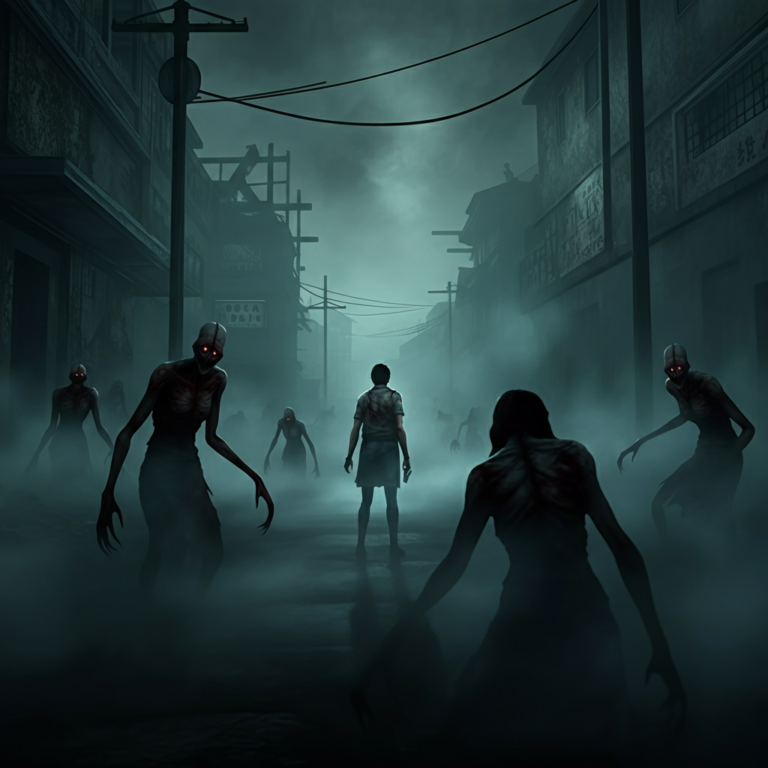Silent Hill is more than just a game; it’s a haunting experience that has carved a niche in the horror world. From its eerie fog-covered streets to its unforgettable soundtracks, Silent Hill remains a pivotal name in a genre meant to terrify and intrigue in equal measure. Originally released in 1999, Silent Hill has evolved into a franchise that continuously inspires horror fans and game developers alike.
This guide will take you deep into the franchise’s essence, exploring its history, characters, mechanics, and cultural impact. Whether you’re a seasoned gamer or new to Silent Hill, join us as we uncover everything there is to know about this haunting legacy.
Silent Hill’s Impact on the Horror Game Genre
Few series can claim to have reshaped an entire genre, but Silent Hill did just that. Developed by Konami, Silent Hill set itself apart from competitors like Resident Evil by leaning heavily into psychological horror. Instead of jump scares, it taps into your deepest fears with unsettling tension, labyrinthine towns, and haunting audio designs.
The original game’s blend of atmospheric storytelling, cryptic puzzles, and survival challenges made it a hallmark for fans of horror video games. Silent Hill paved the way for psychological storylines in horror games, influencing titles like Outlast and Alan Wake. Even after decades, its unique approach to fear remains unmatched.
The Evolution of Silent Hill Games: A Historical Overview
The Classic Era (1999–2003)
The Silent Hill franchise began with the original 1999 PlayStation title. Its foggy streets and unpredictable gameplay offered something previously unseen. This was followed by perhaps its most celebrated entry, Silent Hill 2 (2001), which is lauded for its deep narrative exploring guilt, mental health, and morality.
Silent Hill 3 (2003) continued to impress with groundbreaking visuals and a story tied to the first game, while Silent Hill 4: The Room (2004) introduced some experimental changes.
The Western Development Era (2006–2012)
Following the success of the originals, subsequent entries saw development shift to Western studios. While games like Silent Hill Origins (2007) and Silent Hill Homecoming (2008) maintained the unsettling vibe, they featured more action-oriented gameplay, dividing fans of the series.
The Modern Era (Silent Hill Rebirth)
After Silent Hills P.T. crumbled into cancellation, fans were left questioning the series’ future. But there’s hope on the horizon—new remakes and rumors of revitalized installments suggest we may see Silent Hill return stronger than ever, reaffirming its spot as the king of horror games.
Exploring Silent Hill’s Iconic Characters and Monsters
Silent Hill wouldn’t be the same without its unforgettable characters and grotesque monsters.
The Protagonists
From the humble Harry Mason desperately searching for his daughter in Silent Hill to the tormented James Sunderland in Silent Hill 2, the series deep dives into the human psyche. Both characters remind us that real horror stems from within.
The Monsters
Monsters like Pyramid Head are more than just enemies—they’re metaphors. Pyramid Head, in particular, represents James’ guilt in Silent Hill 2, embodying the psychological depth that makes the series unforgettable. The faceless nurses, too, symbolize suppressed memories or trauma, adding layers to the gameplay experience.
Gameplay Mechanics and Design in the Silent Hill Franchise
Silent Hill’s gameplay is lauded for its ability to balance terror with exploration.
- Environment Design
The unsettling fog, dim lighting, and decaying scenery pull players into the desolate nightmare of Silent Hill. These environmental details serve as both an obstacle and a storytelling element.
- Combat and Survival
Unlike action-packed horror games, Silent Hill thrives on survival mechanics. Weapons feel clunky, ammo is scarce, and health packs are a rare treasure—forcing players to weigh every decision carefully.
- Puzzles
Cryptic puzzles are another hallmark of the gameplay. Be it deciphering a bizarre poem or rearranging symbols, these challenges deepen the immersion.
The Cultural Impact of Silent Hill on Pop Culture
Silent Hill’s influence has reached far beyond the gaming community. The 2006 Silent Hill movie and its sequel brought the foggy horror to life on the silver screen, introducing it to an entirely new audience. Additionally, its unsettling soundtrack by Akira Yamaoka continues to inspire musicians to this day.
Modern influencers, fan theories, and homage in other games reflect how Silent Hill remains a beacon of creativity. Its willingness to probe the darkness of human nature keeps the franchise timeless, discussed in online forums, reviewed on YouTube, and endlessly dissected by fans.
What Makes Silent Hill Unique Among Horror Games?
Silent Hill’s uniqueness lies in its ability to blend atmosphere with deep narrative techniques. Other horror games may rely heavily on gore or jump scares, but Silent Hill chooses to linger—creating fear through silence, sound, and psychological tension. Each game feels personal, forcing players to confront their fears head-on.
From its inventive storytelling to its symbolic monsters, Silent Hill is an art house horror masterpiece disguised as a video game.
Silent Hill’s Future and Fan Expectations
With recent announcements hinting at possible remakes of Silent Hill 2 and whispers of new entries, fans of the franchise are more hopeful than they’ve been in years. Expectations are sky-high for modern reimaginings that retain the core elements that made the franchise legendary.
Fan communities are also brimming with creativity—whether via mods, theory videos, or even fan-made games imagined in the Silent Hill universe. The fandom itself is evidence of Silent Hill’s longevity in the cultural zeitgeist.
The Legacy of Silent Hill
Silent Hill has influenced nearly every corner of the horror entertainment universe—from video games to film and literature. Its innovative gameplay, powerful narratives, and eerie aesthetics have made it a staple for gamers and creators worldwide.
The fog-covered streets may feel lonely, but joining the world of Silent Hill has always been a communal experience for horror lovers. With its enduring legacy and fans’ unwavering enthusiasm, it’s clear that Silent Hill’s story is far from over.
